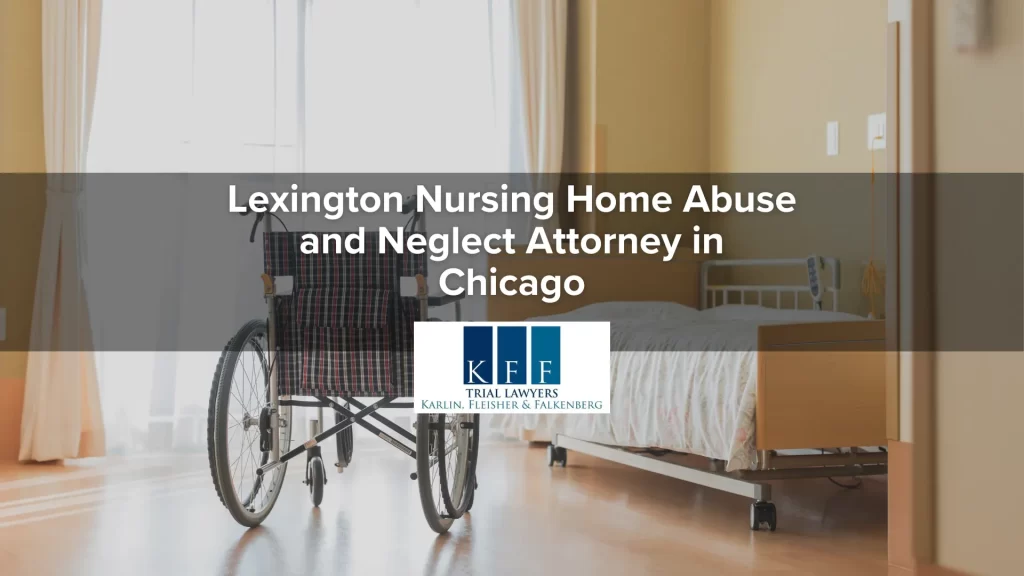
We want nothing more than for our cherished family members to be taken care of in their golden years. For many people that means entrusting their care to a skilled nursing home facility such as Lexington Health Care. We may not have the means to be able to properly care for our aging relatives, but a nursing home can provide the quality health, mental, and social care they need.
What happens when the home you so carefully chose, chooses to turn its back on your family members’ wellbeing? The unfortunate reality is that not everyone takes their job as caregiver seriously, and not every nursing home properly vets or monitors their staff.
The facts are staggering. According to numbers from the World Health Organization, between 2017 and 2018, at least 1 in 6 adults over the age of 60 suffered some form of abuse while in a nursing home setting. Even more alarming is the fact that 2 in 3 nursing home staff have admitted that they have actively abused the elderly. While you may have done your homework, nursing home staff come and go, and abuse can happen at any time.
If you have a family member at a Lexington Health Care nursing home and suspect that they may be suffering from some form of abuse, don’t hesitate to call Karlin, Fleisher & Falkenberg, LLC. We will investigate your claims with compassion and sensitivity. Call 312-346-8620 for a free consultation. Our attorneys can give you the advice you need to protect your family.
What is Nursing Home Abuse?
The Nursing Home Abuse Center defines nursing home abuse as any type of action that harms an elderly resident in a nursing home or long-term care facility. What typically jumps out to people as “abuse” is the act of physical abuse, some type of violent action. However, there are several types of abuse that can happen in a nursing home setting, including physical, emotional, sexual, and financial abuse.
Types of Abuse
 Not all abuse leaves a mark. It can be easier to identify abuse when there are obvious signs like bruises, broken bones, and bedsores. However, abuse takes many different forms in a nursing home facility. This guide will help give you a better idea of the many different forms that abuse can take:
Not all abuse leaves a mark. It can be easier to identify abuse when there are obvious signs like bruises, broken bones, and bedsores. However, abuse takes many different forms in a nursing home facility. This guide will help give you a better idea of the many different forms that abuse can take:
- Physical Abuse – Physical abuse is the act of laying hands on a resident and causing them bodily harm. This form of abuse can often result in injuries such as bruises, cuts, and broken bones.
- Sexual Abuse – This type of abuse includes any form of touching, fondling, intercourse, or other unwanted sexual activity. In the case of the elderly, a resident may vocally refuse consent, but in other situations, they may be unable to give consent. Taking advantage of a resident who is unconscious, under the influence of powerful drugs, or otherwise unable to consent is considered sexual abuse.
- Emotional or psychological abuse – Many residents may find themselves on the receiving end of emotional abuse. This type of abuse is the use of any verbal threats, insults, humiliation, or intimidation. While the signs of this form of abuse are more subtle, emotional abuse can be extremely damaging.
- Financial Abuse – Financial abuse is the exploitation of an elderly resident for financial gain. This type of abuse leads to the misuse or withholding of an elderly person’s money or resources. Financial abuse can be theft, manipulation to gain access to a person’s accounts, identity theft, and scam investments, just to name a few.
- Neglect – In some cases, an elderly person may simply be the victim of another form of abuse, neglect. They are not properly fed, given water, or even medical care. The caregiver simply refuses to acknowledge them and their needs.
Signs of Nursing Home Abuse
One of the best ways you can protect your loved ones is to remain vigilant and be aware of the signs and symptoms of nursing home abuse. Again, it may not be as simple as noticing new bruises or another broken bone. The signs of emotional and even financial abuse can be subtle and hard to detect.
It’s up to you to be your loved one’s most dedicated advocate because, according to the Office of the Inspector General, nursing home and elder abuse are woefully under-reported, and studies have shown that older adults who suffer abuse have a substantially higher risk of death. You can help prevent your loved one from becoming another statistic by looking out for some of these signs of abuse:
Physical Injuries:
- Cuts, bruises, or broken bones with no logical explanation
- Sores
- Burns
- Unexplained marks on the body or genitals
- Repeated falls
Emotional Changes:
- Sudden or unexplained anxiety or depression
- Withdrawal from activities or favorite pastimes and activities
- Change in sleep or eating patterns
- Refusal to cooperate with certain staff members or complaining about certain staff
- Lack of eye contact
- Distancing themselves from others
Other Warning Signs-
- Unexplained change in weight or appearance
- Poor hygiene
- Unchanged linens or bandages
- Frequent illnesses or infections
- Change in a financial situation
- Missing possessions from their room
- Malnourishment and dehydration
While this is not a comprehensive list, it gives you a good idea of what to look for when it comes to the signs of abuse. Trust your instincts. If you feel like something is just not right with your family member, then it may be time to investigate further or ask for help.
Can Karlin, Fleisher & Falkenberg, LLC Help Me and My Family with a Lexington Health Care Case?
At Karlin, Fleisher & Falkenberg, LLC, we take Lexington Health Care nursing home abuse accusations very seriously. Our attorneys have the experience and resources to thoroughly investigate suspected acts of abuse at a nursing home. If you feel like something is not right, don’t be afraid to act. The longer you wait, the more your family member suffers.
We are dedicated to protecting the rights of you and your family members while holding negligent facilities and their staff accountable for their actions. Reach out to us at 312-346-8620 for a free consultation.
